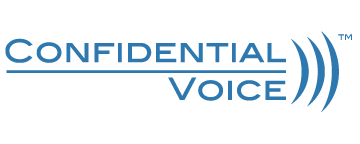
About Us
Confidential Voice is an anonymous ethics hotline.
Confidential Voice can alert you to possible problems, such as: violence in the workplace, theft, drugs, fraud, favoritism, extortion, kickbacks, embezzlement, bribes, discrimination, misuse of managerial powers, and/or harassment issues.
- Confidential Voice was created to discourage employees, managers, or supervisors from committing costly violation which result in expensive solutions.
- Confidential Voice is the best "thinking outside the box" response for every type of company problem because it gives a unique solution—it makes the violators think . . . "Any co-worker can anonymously tell the company about my actions."
- Confidential Voice will minimize the chances of harassment claims because we are another resource to the employees for reporting problems in the early stages of the possible violation.
- Confidential Voice is safe for the user. The login system ensures no one from outside the company can log in and make up false claims.
When we document an incoming employee concern, we immediately notify our contact person(s) - the individual designated by the company to receive the information (a second alternative is named if the information accuses the first individual of wrongdoing), and your labor law attorney.
Information is relayed to you in a timely manner.
If we personally talk to your employee, that individual will be treated with dignity and respect. We will attempt to gather as much information as possible, while making the person feel comfortable.
We do not report information regarding union activity. We work hand in hand with unions and if designated, will share our findings with any organization the company chooses.
We are not police officers. We are the receivers of information which is passed on to you so with guidance from your attorney, you can make the necessary decisions or corrections. If an outside investigation firm is required, we, or your labor attorneys, can recommend an investigation firm.
All information received in this process is deemed as a starting point to a possible investigation of wrongdoing. At no point should you act on information as true without first gathering additional facts. This process begins the "due diligence." It does not conclude a case.
